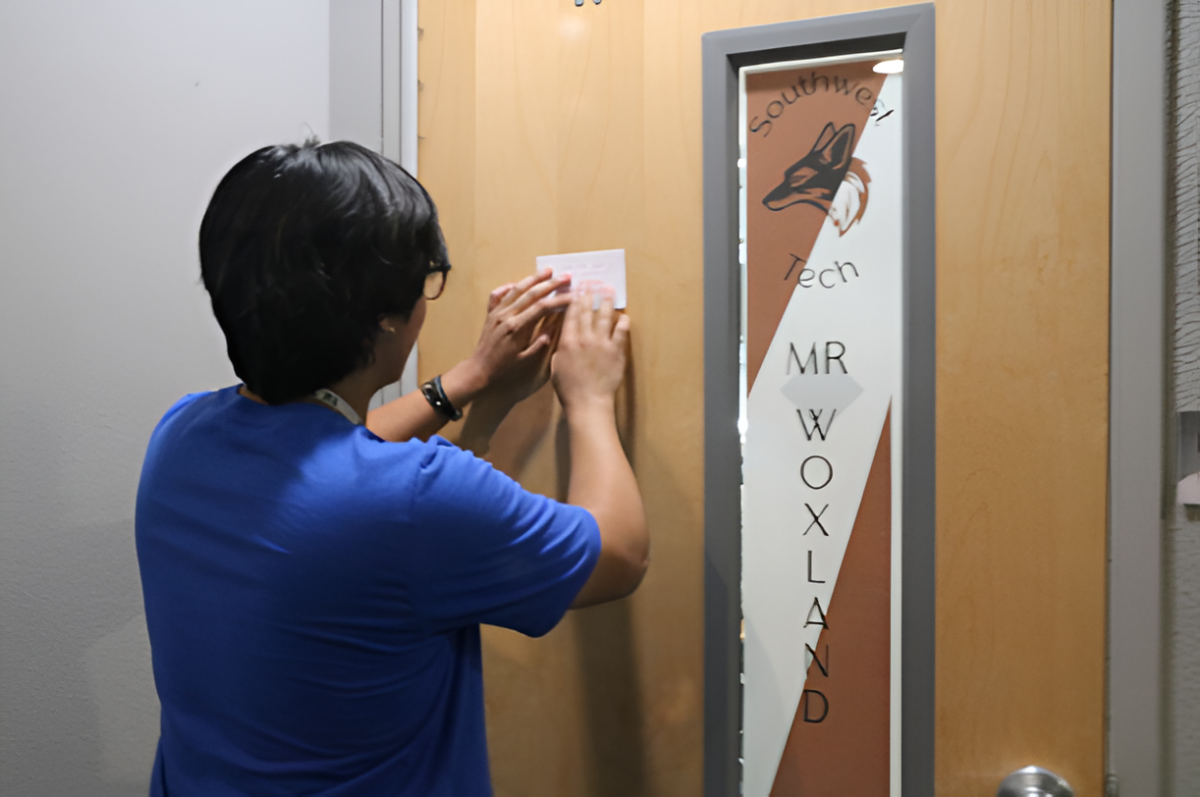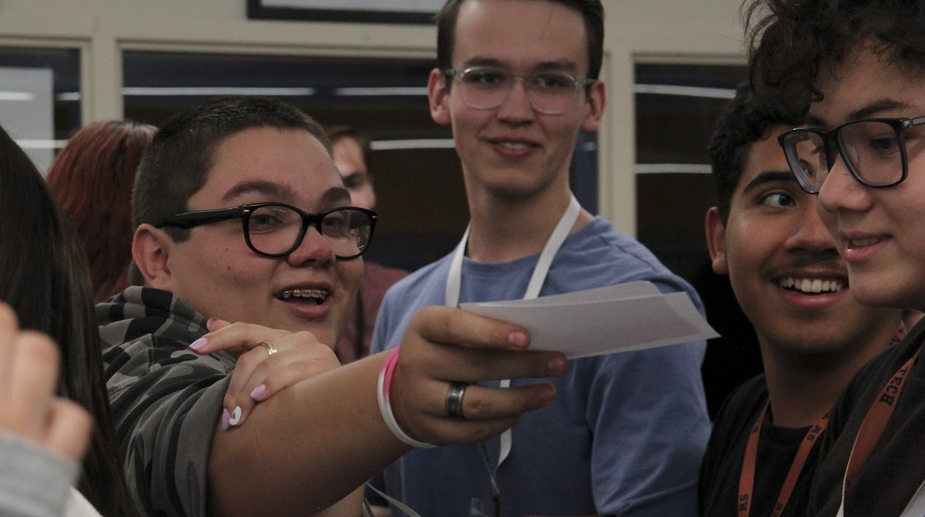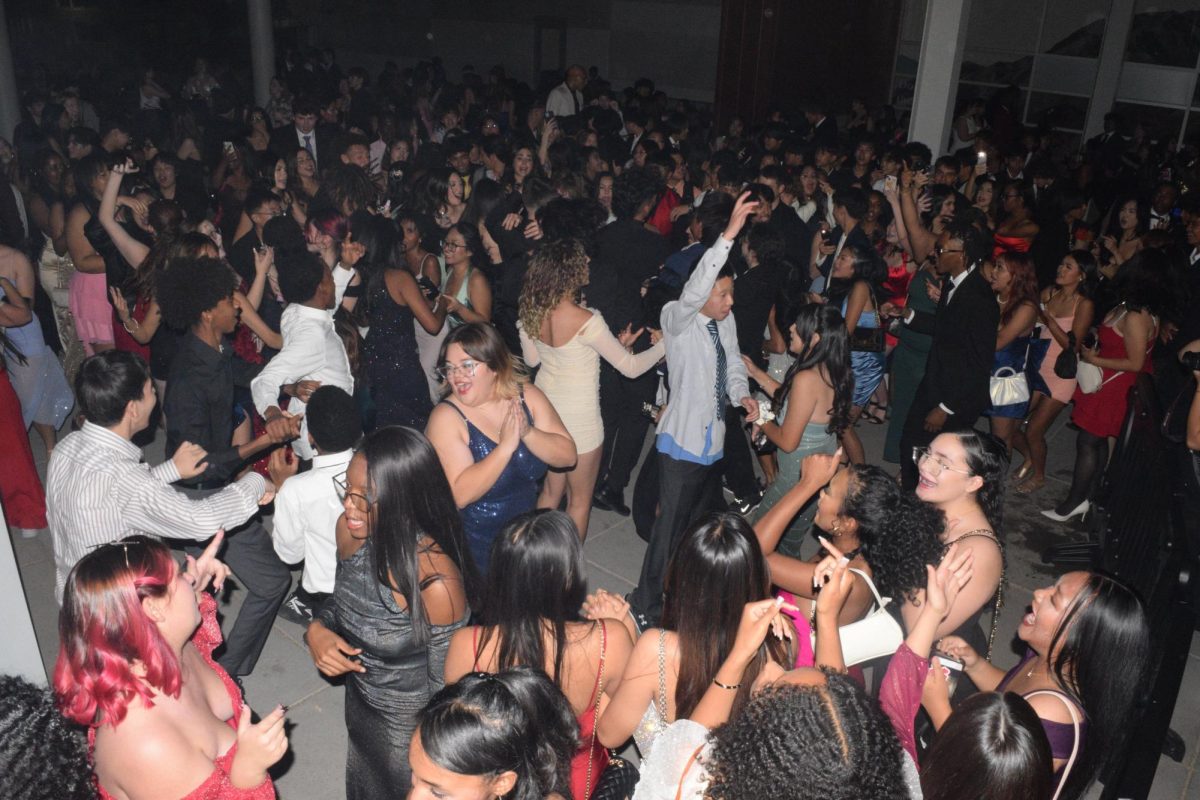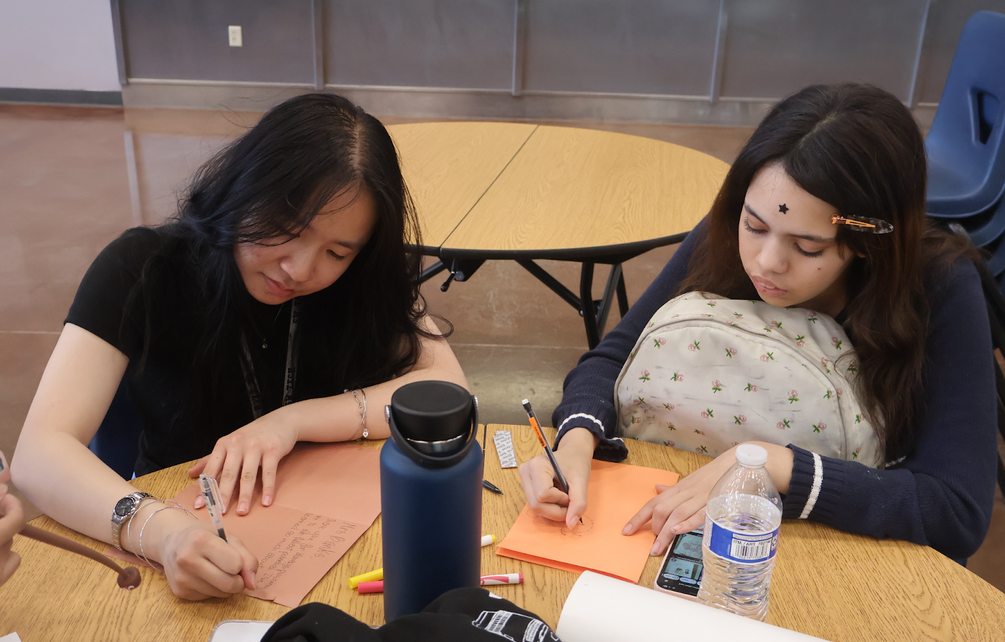To minimize distractions in classrooms, the district has banned phones by requiring them to be stored in signal-blocking pouches in Nevada schools starting in Aug. 2026.
The Nevada phone law requires each district to make its own plans limiting personal device usage in a classroom setting under Senate Bill 444.
“It’s going to be hard, but [they are] going to eventually have to understand that this is no longer just a policy now,” Assistant Principal Eric Gant said. “Then you follow just your regular progressive discipline, which is already in place with your phone being confiscated.”
Administration has decided to participate in the district’s policy early, and some students have seen certain improvements in classrooms.
“I feel like it’ll kind of help force students to kind of talk to each other more, and socialize more and less being on your phone,” junior Jaidyn Eddington said. “I’ve been probably the most productive that I’ve ever been. I’ve been able to get my work done and turned in.”
However, some students have expressed their concerns with the policy.
“Not having access to phones is something that could be very detrimental in the future,” senior Nicolas Markwith said. “Generally, like emergencies, it’s good to tell your parents what’s going on; they should want to know what is going on [in school]. I feel like the way things were already before was good, and how strict they are being about it now is too extreme.”
Teachers are responsible for making their own rules for their classrooms, and each class’s rules differ.
“This is an expectation of the school and the state of the classroom that we trust you [the teachers] to develop a plan that is best for your classroom,” Gant said. “So I think as adults, you hope, as their supervisors, that they’re gonna create the best possible plan to follow the law, to make sure students are doing what they need to do.”
Teachers need to notify administrators when phones will be used in classrooms if it is related to course materials.
“I think the writing was on the wall,” Social Studies teacher Benjamin Lacombe said. “We saw it in some other states first, and now, we’re understanding science better…. [phones] are relatively still new technologies. So those studies [about the impacts of phones in the classroom] have been slow to come out. It takes years to really figure out, you know, what’s good for you, what’s not. With the way that people have complained about cell phones, we see how it affects the development of kids. I think it was coming no matter what.”



![Working in the Student Success Office, Attendance Secretary Lordis Depiazza inputs a student’s absence excuse note. Students are required to bring an excuse note to the attendance office within three days of any absence. “Reminding students that being in school is important because it reflects towards your grades and being able to do any activities with the school,” Depiazza said. “[It] seems to get the students' attention about wanting to be in school.”](https://southwestshadow.com/wp-content/uploads/2025/10/IMG_8313-1200x800.jpg)

![Squaring up to a practice dummy, sophomore Cypher Andres prepares to throw a punch. Dummies are regularly used to help him prepare certain hits to take his opponents down. “[Boxing dummies help me practice] because it’s basically a model of the body,” Andres said. “It helps with accuracy, such as pressure points behind the ear, and a clean liver shot can end the fight.”](https://southwestshadow.com/wp-content/uploads/2025/10/IMG_5728-e1759850486200-1200x864.jpg)

![Arranging the fabric on the floor for a new project, senior Sapphyre-Ann Leung plans out her attire for the next deadline. With the recent closures, students now had limited resources and less margin for error with the fabric and materials they had in stock while trying to reach strict deadlines. “Joann’s had a lot of high-end fabric for our fashion competitions,” Leung said. “We couldn’t just buy ten yards of fabric from Hobby Lobby or Walmart. Since [Joann Fabrics] is no longer open, we have to buy items online, which is way more expensive.”](https://southwestshadow.com/wp-content/uploads/2025/10/IMG_0038-1200x800.jpg)


![Practicing the basic skills of nursing, sophomore Natalia Yancey gets her heartbeat checked with a stethoscope. Sophomore nursing students reviewed skills from freshman year. “I’ve always wanted to be in the medical field; it’s been my dream forever,” Yancey said. “Doing [practice skills] so early on is not only an amazing opportunity, but it helps me to prepare for my future.”](https://southwestshadow.com/wp-content/uploads/2025/10/IMG_9843-1200x800.jpg)


